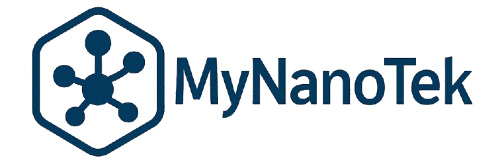Precision medicine with nanoscale technologies
Precision Medicine with Nanoscale Technologies
Have you ever wondered how medical treatments could become as unique as your own DNA? In a world where one-size-fits-all approaches often fall short, precision medicine is emerging as a beacon of hope. Nanoscale technologies are at the forefront of this revolution, promising to customize healthcare in ways previously unimaginable.
The Problem: One-Size-Fits-All in Medicine
Traditional medicine has largely been built on standard protocols that apply broadly to all patients. While effective in many cases, this approach often misses the mark for individuals with unique genetic backgrounds or specific health conditions. This lack of personalization can lead to ineffective treatments, adverse reactions, and unmet medical needs.
The consequences of such generalized approaches are far-reaching, particularly in complex diseases like cancer, where the molecular characteristics can vary dramatically between patients. As Sir William Osler, a founding figure in modern medicine, once said, “The good physician treats the disease; the great physician treats the patient who has the disease.” Clearly, there’s a pressing need for more tailored approaches.
Agitation: The Limitations of Current Approaches
Despite advances in genomics and data analytics, the medical community continues to grapple with significant limitations. For instance, cancer treatments that might work wonders for one patient could be ineffective or even harmful to another. Researchers and clinicians are constantly seeking innovative solutions to bridge this gap, but challenges persist.
“The promise of precision medicine is only as good as the tools we use to deliver it.” – Dr. Leroy Hood
Enter nanotechnology. By operating at the molecular and atomic levels, nanotech holds the potential to revolutionize how we approach personalized healthcare. But what exactly does this entail?
Encadré: What is Nanotechnology?
Nanotechnology involves manipulating matter at the nanoscale, typically between 1 and 100 nanometers. At this scale, materials can exhibit unique properties not seen at larger scales, making them particularly useful in medical applications.
Solution: Precision Medicine through Nanotechnology
Nanotechnology offers solutions that align perfectly with the goals of precision medicine. By enabling the development of highly targeted therapies, nanoscale technologies ensure treatments are fine-tuned to the individual’s unique genetic makeup and health profile.
- Targeted Drug Delivery: Nanoparticles can be engineered to deliver drugs directly to diseased cells, minimizing side effects and improving efficacy.
- Diagnostics: Nanoscale devices can detect biomarkers at incredibly low concentrations, aiding in early disease detection and monitoring.
- Tissue Engineering: Nanomaterials are used to create scaffolds that support tissue regeneration, paving the way for advanced regenerative medicine.
- Gene Therapy: Nanocarriers can deliver genetic material into cells to correct genetic disorders at their source.
Future Tech: The Promise of Nanotech Applications
The field of nanotechnology is brimming with innovations. From nanoscale robots designed to perform surgical tasks with unprecedented precision to smart nanodevices that monitor real-time health data, the future is indeed promising.
“Nanotechnology will let us build computers that are incredibly powerful. We’ll have more power in the volume of a sugar cube than exists in the entire world today.” – Ralph Merkle
Beyond its current applications, researchers are exploring new frontiers that could redefine medicine. Imagine a world where medical treatments are so precisely aligned with your biology that they effectively become part of you.
Challenges Ahead: Bridging Innovation and Application
While the potential of nanotechnology in precision medicine is enormous, challenges remain. Regulatory hurdles, ethical considerations, and the complexities of scaling up from research to clinical application are significant barriers.
However, these challenges are being met with collaborative efforts between scientists, industry leaders, and policymakers. As these obstacles are overcome, the integration of nanotechnology into mainstream healthcare continues to gain momentum, driven by the relentless pursuit of tailored, efficient, and effective treatments.
Conclusion: Embracing the Future of Medicine
Nanotechnology is not just a trend; it’s a transformative force that is redefining the landscape of medicine. By aligning treatment with the intricacies of individual patients, precision medicine powered by nanoscale technologies offers a transformative approach to healthcare.
Now, it’s your turn. Whether you’re a patient, healthcare provider, or simply someone interested in the future of medicine, consider how these technological advancements might impact you. By staying informed and engaged, you can be part of the journey toward a more precise and personalized era in medicine.
